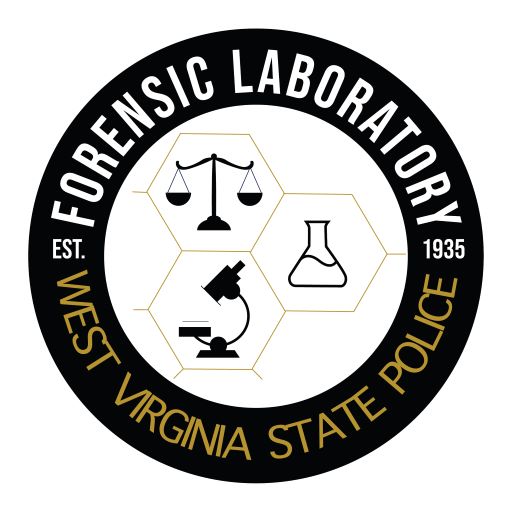
WEST VIRGINIA STATE POLICE
FORENSIC LABORATORY
The West Virginia State Police Forensic Laboratory is a full-service laboratory that performs specialized examinations on evidence collected during criminal investigations. Many sections/services of the laboratory are ISO/IEC 17025:2017 accredited for testing by ANSI National Accreditation Board (ANAB). The Breath Alcohol Section of the laboratory is ISO/IEC 17025:2017 accredited for calibration by ANAB. See Forms and Links for current accreditation certificates and scopes of accreditation. Forensic testing is provided as a free service to all law enforcement entities operating within the 55 counties of West Virginia.
Laboratory Philosophy Statements
Management
Laboratory management recognizes that the Laboratory is one element of a multifaceted "criminal justice system," and that scientific results generated by the Laboratory may be used by any element of that system.
MiSSION
It is the mission of the West Virginia State Police Forensic Laboratory to provide accurate and impartial scientific support services to all criminal justice agencies operating in the State of West Virginia.
Goal
The goal of the West Virginia State Police Forensic Laboratory is to generate accurate, impartial, and timely scientific examinations and opinions for the criminal justice system of the State in the interest of public safety.
Examinations and Functions
The Laboratory is composed of seven specialized sections that provide the following services:
- Analysis and identification of controlled and non-controlled substances and quantitation of select controlled substances (Seized Drugs).
- Analysis, identification, and quantification (select sample types) of ethyl alcohol in suspected alcoholic beverages and blood/urine specimens. Analysis, identification, and quantification (select sample types) of urine and blood specimens for the presence of drugs (Toxicology).
- Analysis and identification of ignitable liquids in fire debris and other forms of evidence. Analysis and identification of primer gunshot residue (Trace Evidence).
- Processing and preservation of evidence for the presence of bodily fluids (Biology/ Processing). DNA analysis of biological materials (Biology/ DNA). Entry of DNA profiles into an individual characteristics database (Biology/ Databasing).
- Processing (by use of chemical, physical, or electronic means), analysis, comparison, evaluation, and verification of friction ridge skin impressions. Entry of prints into an individual characteristics database (Latent Prints).
- Identification and comparison of toolmarks, firearm and fired ammunition component comparisons, distance determinations, analysis of obliterated marks, and trajectory analysis. Analysis and comparison of footwear and tire tread impressions. NIBIN entry/acquisition and correlation reviews via submission (Firearm/Toolmarks).
- Calibration, Maintenance, Repair, and Training for Secondary Chemical Breath Testing Instruments. Adjustments and Distribution of Preliminary Breath Testing instruments (Breath Alcohol).
The laboratory also provides the following services that are not accredited at this time:
- Consultation, processing, documentation, and collection of evidence at scenes (Crime Scene Response Unit).
- The WVSPFL has a NIBIN By Appointment program in order to more efficiently enter evidence into NIBIN without having to use the traditional laboratory submission process. The NBA program allows law enforcement to have test fires from seized firearms and/or evidence cartridge cases from crime scenes entered into NIBIN quickly which will allow potential leads/links between crimes to be disseminated in a timely manner to help reduce gun crime. NIBIN (wvsp.gov)
Laboratory Accreditation
Accreditation was first obtained by the Laboratory on September 26, 1994, through the American Society of Crime Laboratory Directors Laboratory Accreditation Board (ASCLD/LAB), which became ANSI National Accreditation Board (ANAB). As a part of accreditation, the Laboratory’s activities are monitored yearly by ANAB. To maintain accreditation, the Laboratory must comply with specific criteria relating to the Laboratory’s Management and Operations, Personnel and Facilities. The criteria and standards address laboratory administrative practices, procedures, training, evidence handling, quality control, analysis protocols, testimony, proficiency testing, personnel qualifications, space allocation, security, and a variety of other related topics. The Laboratory is assessed yearly by ANAB, with a full on-site reassessment every four years. Additionally, the Biology/ DNA and Databasing Unit are assessed every other year by an outside agency using the FBI Quality Assurance Document for Forensic DNA Testing Laboratories and DNA Databasing Laboratories.